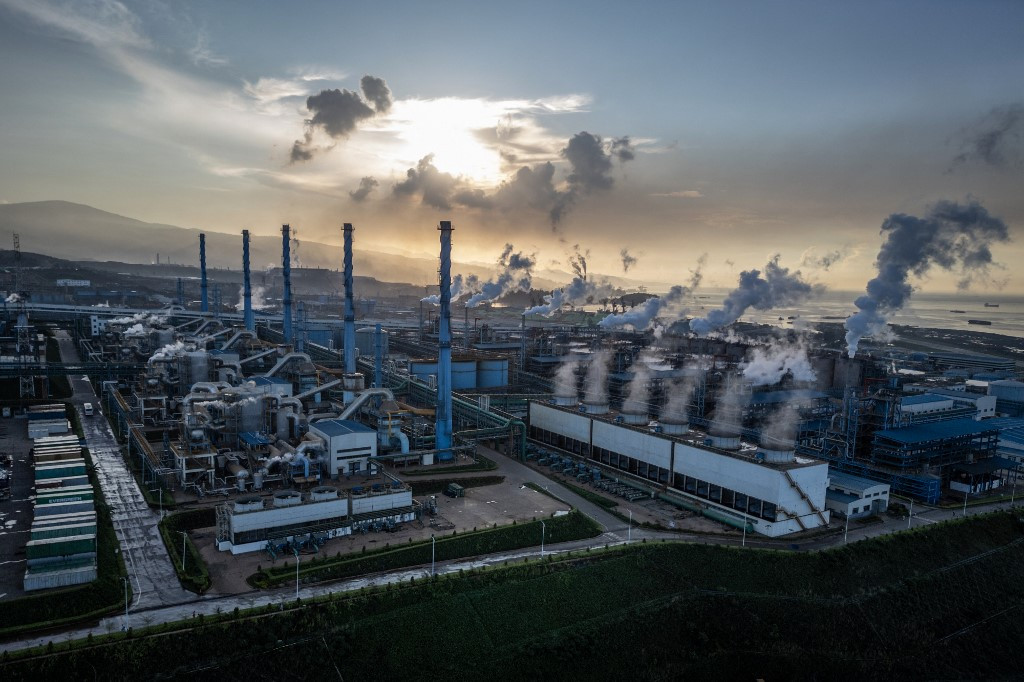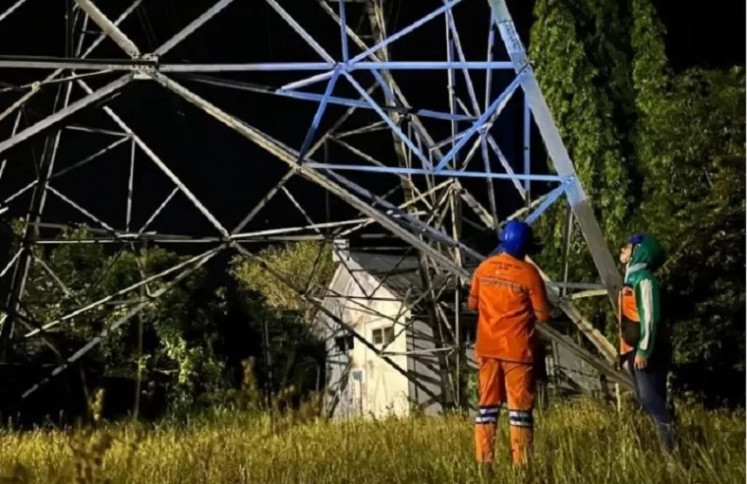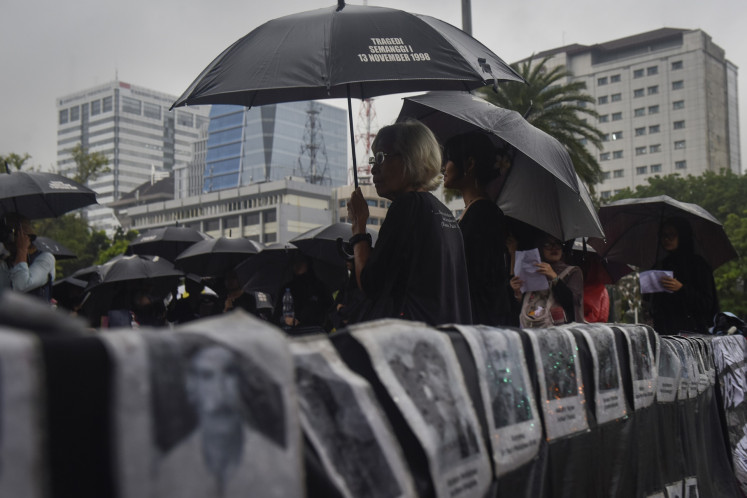Popular Reads
Top Results
Can't find what you're looking for?
View all search resultsPopular Reads
Top Results
Can't find what you're looking for?
View all search resultsDiversifying partnerships in Indonesia’s nickel downstreaming strategy
Given the current geopolitical climate, Indonesia must further diversify its partnerships to strengthen the resilience of its nickel downstreaming strategy.
Change text size
Gift Premium Articles
to Anyone
T
he signing of a memorandum of understanding (MoU) in late May between the Indonesian Investment Authority (INA), state asset fund Danantara and French mining and metallurgy company Eramet marks a significant step by the Indonesian government to diversify partnerships in its nickel sector. The agreement, which aims to create a strategic investment platform covering the entire nickel value chain, from extraction to industrial processing, signals a corrective shift in policy.
This development comes just one month after South Korea’s LG Energy Solution (LGES) withdrew from a US$8.45 billion electric vehicle (EV) battery project in Indonesia, and was replaced by China’s Huayou. It also reflects Indonesia’s readiness to raise environmental and social standards in its mining industry. In mid-2024, Eramet and Germany’s BASF exited a $2.6 billion nickel-and-cobalt refinery project in Halmahera, citing environmental and social concerns.
Given the current geopolitical climate, Indonesia must further diversify its partnerships to strengthen the resilience of its nickel downstreaming strategy, improve the sustainability of its nickel industry and boost the global competitiveness of its nickel-based commodities. At least two aspects of partnership diversification are critical: Investment and market development.
Since 2016, foreign direct investment (FDI) in Indonesia’s nickel processing and refining sector has focused heavily in Sulawesi and Maluku. These regions have become hubs for the country’s nickel downstreaming industry, supported largely by joint ventures dominated by Chinese companies. Chinese ownership in major industrial parks includes at least 49.7 percent in Morowali, Central Sulawesi (IMIP); 100 percent in Weda Bay, North Maluku (IWIP); and 68 percent in Konawe, South Sulawesi (IKIP).
The result has been a near-total shift of Indonesia’s nickel ore production toward domestic processing and refining. Since 2020, practically all mined nickel ore has been converted into higher-value commodities such as ferronickel, nickel pig iron (NPI), mixed hydroxide precipitate (MHP) and nickel sulphate, all of which are crucial inputs for steelmaking and EV battery production. MHP, produced through high-pressure acid leaching (HPAL), is used to manufacture nickel sulphate, which is a key precursor for battery cathodes.
However, the dominance of a single country in the supply chain may deter other investors due to perceived market imbalance. Concerns about unequal treatment and pricing practices within a supply chain dominated by established players from one country are likely contributing to the reluctance or withdrawal of potential new investors.
Indonesia began exporting MHP in 2021. According to United Nations Comtrade data, the export value rose sharply, from $311 million in 2021 to $2.14 billion in 2022 and $2.66 billion in 2023. While unit prices declined between 2022 and 2023 due to global oversupply, export volumes continued to rise. Indonesia’s global market share in MHP exports jumped from 14.8 percent in 2021 to 77.3 percent in 2023.
However, the market remains heavily concentrated. Nearly all of Indonesia’s MHP exports went to China; 100 percent in 2021, 91.8 percent in 2022 and 99.7 percent in 2023. A similar pattern is seen with nickel sulphate exports, which began in 2023 and amounted to $234 million, or 19 percent of the global total, making Indonesia the second-largest exporter after South Korea. Yet again, 100 percent of this output was exported to China.
This dependence on a single off-taker country poses significant vulnerability to geopolitical shocks, techno-political policy changes and other external disruptions.
To advance a more diversified and resilient downstream nickel industry, Indonesia must take at least the following four steps:
First is guaranteeing fair and competitive market conditions. The government must assure prospective investors of fair treatment and equal opportunity across the supply chain. This includes transparent rules on supply and pricing of raw and processed materials, as well as consistent, investor-friendly regulatory frameworks. Independent monitoring mechanisms should be introduced to ensure a level playing field and avoid monopolistic control by incumbent players.
Second is adopting higher environmental and social standards. Indonesia should commit to stronger environmental, social and safety standards in its mining and processing sectors. While such standards may increase production costs, they help mitigate externalities and enhance the long-term competitiveness of nickel-based products. Adherence to high standards will also expand access to environmentally conscious export markets.
Third is strengthening domestic capabilities. It is crucial to build the technical and institutional capacity of Indonesian firms, both national and local, so they can play key roles in the nickel value chain. This includes mastery of processing and refining technologies, as well as digital tools for supply chain management and environmental impact tracking throughout the lifecycle of nickel-based products, especially EV batteries.
And fourth, build a strong domestic market for nickel-based products. Indonesia’s ambition to become a major EV manufacturing hub must be supported by a robust domestic market. Strengthening domestic demand for EVs will provide a stable foundation for the nickel industry, enabling the country to determine its own technological roadmap and reduce reliance on foreign buyers. Domestic market development also ensures the long-term viability and strategic autonomy of the industry.
---
The writers are energy economists at ERIA (Economic Research Institute for ASEAN and East Asia. The views expressed are personal.











